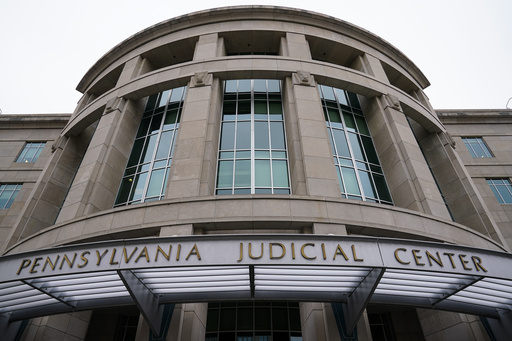HARRISBURG, Pa. (AP) — A township ordinance that limits firing guns to indoor and outdoor shooting ranges and zoning that significantly restricts where the ranges can be located do not violate the Second Amendment, Pennsylvania’s Supreme Court ruled Wednesday.
The man who challenged Stroud Township’s gun laws, Jonathan Barris, began to draw complaints about a year after he moved to the home in the Poconos in 2009 and installed a shooting range on his 5-acre (2.02-hectare) property. An officer responding to a complaint said the range had a safe backstop but the targets were in line with a large box store in a nearby shopping center.
In response to neighbors’ concerns, the Stroud Township Board of Supervisors in late 2011 passed what the courts described as a “discharge ordinance,” restricting gunfire to indoor and outdoor gun ranges, as long as they were issued zoning and occupancy permits. It also said guns couldn’t be fired between dusk and dawn or within 150 feet (45.72 meters) of an occupied structure — with exceptions for self-defense, by farmers, by police or at indoor firing ranges.
The net effect, wrote Justice Kevin Dougherty, was to restrict the potential construction of shooting ranges to about a third of the entire township. Barris’ home did not meet those restrictions.
Barris sought a zoning permit after he was warned he could face a fine as well as seizure of the gun used in any violation of the discharge ordinance. He was turned down for the zoning permit based on the size of his lot, proximity to other homes and location outside the two permissible zoning areas for ranges.
A county judge ruled for the township, but Commonwealth Court in 2021 called the discharge ordinance unconstitutional, violative of Barris’ Second Amendment rights.
In a friend-of-the-court brief, the Pennsylvania attorney general’s office aligned with the township, arguing that numerous laws across U.S. history have banned shooting guns or target practice in residential or populated areas.
Dougherty, writing for the majority, said Stroud Township’s discharge ordinance “is fully consistent with this nation’s historical tradition of firearm regulation.” He included pages of examples, saying that “together they demonstrate a sustained and wide-ranging effort by municipalities, cities, and states of all stripes — big, small, urban, rural, Northern, Southern, etc. — to regulate a societal problem that has persisted since the birth of the nation.”
In a dissent, Justice Sallie Updyke Mundy said Barris has a constitutional right to “achieve competency or proficiency in keeping arms for self-defense at one’s home,” and that the Second Amendment’s core self-defense protections are at stake.
Home Politics Live Politics Pennsylvania’s high court sides with township over its ban of a backyard...
